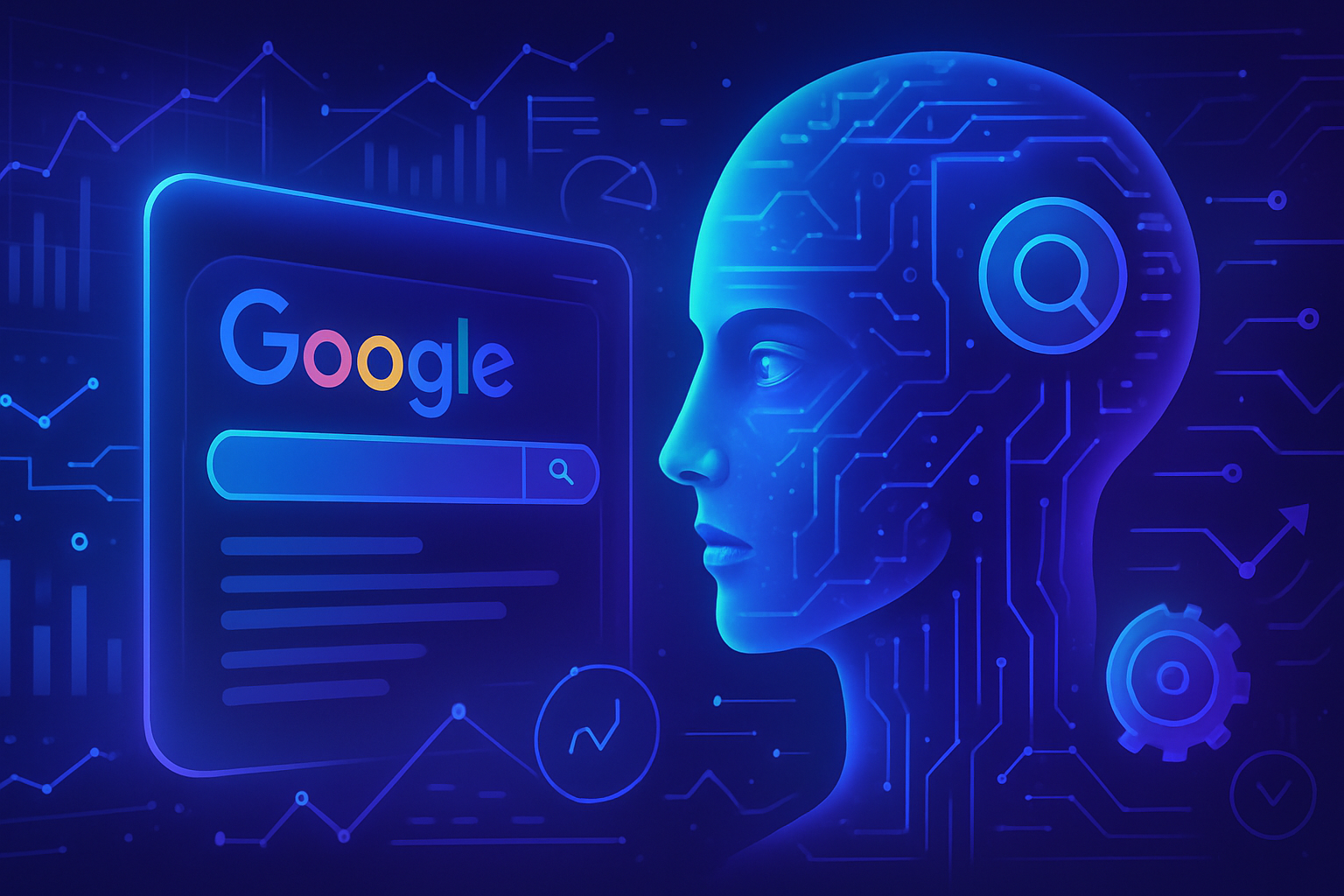Google is reinventing internet navigation with Web Guide, an innovation powered by artificial intelligence. This bold feature restructures search results to optimize user experience. The challenge of this transformation lies in its ability to intelligently reorganize the SERPs, offering more accurate and tailored responses. A change that SEO professionals cannot ignore, as it redefines online visibility strategies.
Introduction to Web Guide
Google recently unveiled Web Guide, an innovative feature using artificial intelligence to rethink the search results page (SERP). Currently in testing phase, this tool aims to transform how results are displayed, reorganizing links based on relevant themes related to user queries.
Features and Functionality
Web Guide stands out for its ability to group search results according to specific angles. Instead of presenting a simple linear list, the AI analyzes the request and structures information in a more intuitive way. For example, for a complex search like how to travel alone in Japan, users can navigate seamlessly through the various aspects of travel, thus facilitating access to sought-after information.
Technically, Web Guide is based on a customized version of Gemini, an AI system that optimizes understanding of queries and online content. Simultaneously, it performs related searches that allow it to extract the most relevant information for the user.
Implications for SEO
With this innovation, Google aims not only to optimize user experience but also to redefine the landscape of SEO. The way results are presented inevitably influences the visibility of content. Industry professionals must adjust their strategies to adapt to this new presentation. Quality, semantic relevance, and alignment with search intents become essential priorities.
Long-term Strategy
Web Guide is part of Google’s commitment to enhance its understanding of queries and online content. These efforts aim to grasp the deep meaning of words and the relationships they hold. This approach coincides with recent infrastructure developments and technological advancements, notably the arrival of MUVERA and GFM.
Availability and Future
Currently, Web Guide is accessible in beta version exclusively for users involved in Search Labs. Google has not yet specified the dates for a broader rollout, leaving some uncertainty regarding its integration in France. The future of this tool and its potential to transform SERPs remains under close observation.
Exploring Other AI Initiatives
The implementation of features like Web Guide is part of a broader context of technological innovations. For example, the role of electronic microchips in the AI sector, as explained in the EU’s microchip strategy study, is helping shape the digital future.
An analysis of strategies adopted by major players such as the Pentagon, in the ambitious AI action plan, highlights the importance of regulatory policies to structure this framework. Research on the use of ChatGPT by digital experts in 2025 also shows notable trends in the adoption of AI tools.
Frequently Asked Questions
What is the main goal of Google’s Web Guide?
Web Guide aims to use artificial intelligence to reorganize search results pages (SERPs), grouping results by themes or specific angles according to user queries.
How does Web Guide arrange search results?
Web Guide restructures the SERP by gathering related results, thereby facilitating navigation through searches that may be complex or open-ended.
What types of queries can benefit from Web Guide?
Open searches, like “how to travel alone in Japan”, and more detailed queries, such as “What tools to use to stay in touch with family across multiple time zones?”, can particularly benefit from organization by Web Guide.
What are the advantages of this new feature for users?
Users will be able to find relevant information more quickly and with a better understanding of the results, making the search experience more intuitive and effective.
Is Web Guide already available to all Google users?
Currently, Web Guide is in beta phase, accessible only to users participating in Search Labs, and its large-scale deployment has not yet been announced.
What technology underpins Web Guide?
Web Guide uses a customized version of AI called Gemini, which allows for better understanding of queries and online content to optimize the display of results.
How might Web Guide’s strategy impact SEO?
This innovation could compel SEO professionals to adjust their strategies, placing greater emphasis on content quality, semantic clarity, and precise alignment with user search intents.
How does Web Guide differ from other AI tools from Google?
Unlike other AI tools that provide direct answers (like AI Mode), Web Guide primarily focuses on reorganizing the results page to improve navigation.
What implications could Web Guide have on the visibility of online content?
The way links are displayed and connected could now affect content visibility, prompting creators to optimize their content strategy accordingly.






